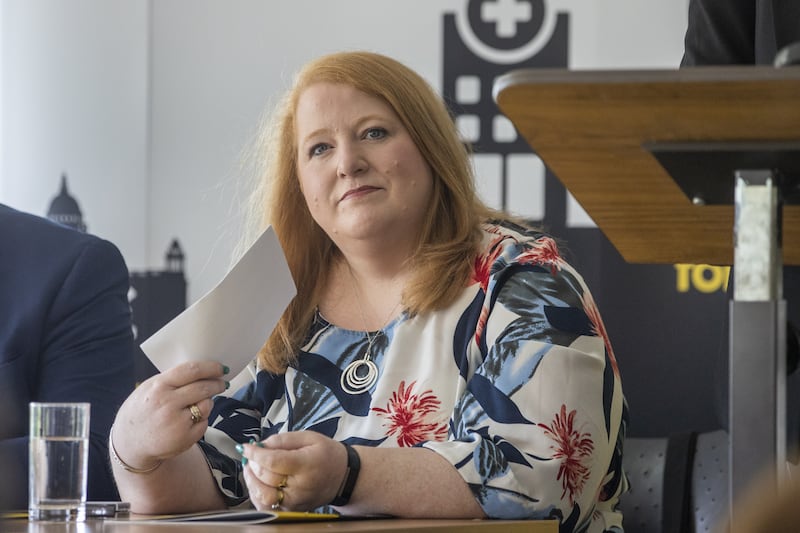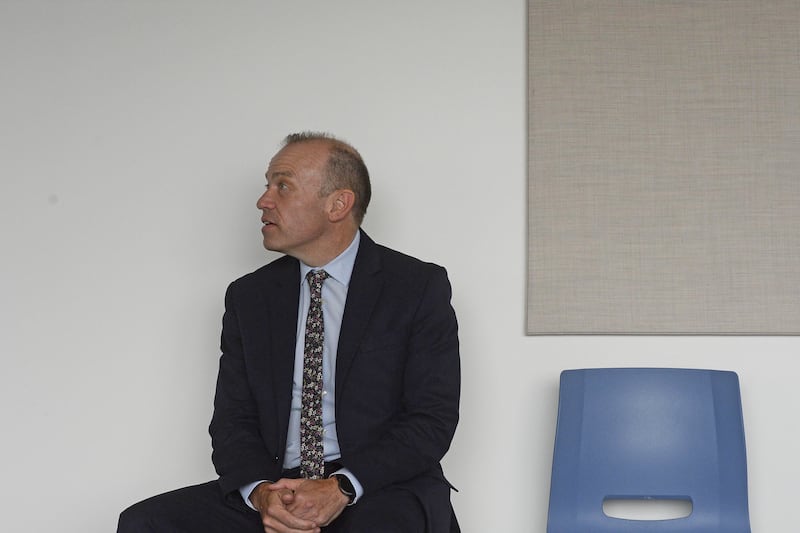Who are the Alliance Party of Northern Ireland (APNI)?
The Alliance Party is a political party in Northern Ireland. It traditionally receives its political support from moderate voters in both the Protestant/unionist/loyalist (PUL) community and the Catholic/nationalist/republican (CNR) community. It does not view itself as either aligned to Irish nationalism or British unionism but instead it sees itself as the party of the non-sectarian middle ground.
Key Facts
Name: Alliance Party of Northern Ireland (APNI)
Constitutional status: Neither pro-Irish nationalist or pro-United Kingdom
Political Strength: Members of Parliament (1), Stormont Assembly Members (17), Local Government Councillors (67)
First Preference Votes in the 2022 Assembly election: 116,681 (13.5%)
Northern Ireland political position: Third in size behind Sinn Fein and the DUP
Alliance Party leader
The Alliance Party leader is Naomi Long. She has led the party since 2016, taking over from David Ford. Naomi Long is an Assembly member for East Belfast and grew up in the constituency. She graduated as a civil engineer and working for almost a decade in the engineering industry before entering politics.
Her first political role was as a Belfast City councillor in 2001. Two years later she won an Assembly seat in East Belfast and in 2009 she became Lord Mayor of Belfast.

Alliance Party councillors
The Alliance has 67 local councillors on councils around Northern Ireland
Alliance Party MLAs
Alliance has 17 seats in the Stormont Assembly
Alliance Party MPs

Alliance has one Member of Parliament (MP) following the 2019 general election in which Stephen Farry won the North Down seat. He secured 45.4% of the vote. It previously held the East Belfast seat after Naomi Long dramatically ousted DUP leader and first minister Peter Robinson in the 2010 general election. The DUP won the seat back at the next election, having agreed an electorial pact with the UUP.
Alliance and the European Parliament
Party leader Naomi Long was elected as the party's first Member of the European Parliament (MEP) in 2019.
The UK voted to leave the European Union in 2016 - the decision is referred to as Brexit - and did so in January 2020, at which point Naomi Long had to leave the European Parliament and return to the Northern Ireland Assembly, serving as Justice Minister until October 2022.
Who founded the Alliance Party?
The Alliance Party was formed in 1970 by solicitor Oliver Napier and trade unionist Bob Cooper from the New Ulster Movement (NUM) pressure group. The Alliance Party originally represented itself as a moderate and non-sectarian unionist party but throughout the1990s it began to adopt a neutral position on support for the union between Britain and Northern Ireland.
Throughout the Troubles it often found itself as the fifth largest political party in elections, behind the UUP, DUP, SDLP and Sinn Fein.
Alliance's election success and a DUP/UUP electoral pact in East Belfast

Alliance won its first seat in the House of Commons parliament in 2010, when Naomi Long unseated then DUP leader and first minister Peter Robinson in the East Belfast constituency.
However, the DUP regained the seat in a 2015 general election, following an electoral pact with the UUP to oust Mrs Long from the seat. In 2019, Alliance regained its place in the House of Commons when deputy Alliance leader Stephen Farry won a seat in North Down. Overall, the party was third in first-preference votes among political parties in Northern Ireland.
In the same year Naomi Long won the party's first seat in the European Parliament, again with the third highest first-preference votes.
In 2022 it secured its best Stormont Assembly results, winning 17 seats and again being the third biggest party with 116,681 first-preference votes.
What are Alliance policies?
The party campaigns to improve community relations in Northern Ireland through the strengthening of integrated education, a bill of rights as well as policing reforms.
It supports same-sex marriage although in 2015 three Alliance MLAs abstained from a vote to allow civil partnerships.
The party allows its politicians to vote on individual conscience on the issue of abortion rights.
Political experts argue that the party faces a difficult decision over the issue of a border poll referendum to determine whether voters in Northern Ireland wish to become part of a united Ireland. Alliance leadership insists that it has no predetermined position on the outcome of a border poll.
In 2022, deputy leader Stephen Farry told party members: “Alliance is not a party that is defined by the constitutional question. While there may be some members who prefer the union, and some who prefer a united Ireland and indeed many who are open to persuasion, we are not only united, but defined, by our shared commitment to make this society work, to overcome division and to build a better future.”
Did Alliance support the Good Friday Agreement?
Yes Alliance took part in the Good Friday Agreement talks in 1998 and was elected to the power-sharing Northern Ireland Assembly.
Alliance assembly members (MLAs) campaign for reform of the political system in the Stormont assembly to prioritise issues other than the constitutional question of Northern Ireland’s future. It is designated as neither unionist or Irish nationalist, but is instead classified as other.
However, in November 2001 Alliance assembly members were re-designated as unionists to allow for the re-election of then UUP leader David Trimble as first minister, over fears that anti-Good Friday Agreement unionists would block Mr Trimble’s selection as first minister.
That non-sectarian stance has often seen Alliance politicians being appointed to contentious positions in place of either unionist or nationalist assembly members.
In 1998 Alliance party leader John Alderdice became the first speaker of the Stormont Assembly.
In 2010 then Alliance leader David Ford was appointed as the Assembly’s first Justice Minister in 38 years.
In 2020 current party leader Naomi Long was again appointed as justice minister, where she served for two years until the assembly was collapsed by the DUP.
Were Alliance members attacked by paramilitary groups during the Troubles?
Alliance was targeted by both republican and loyalist paramilitary groups during the Troubles but since the Good Friday Agreement the party has often been the target of repeated verbal criticism and physical attack from extreme loyalists.
In 2002 the party was verbally attacked by unionist politicians after it supported the election of Alex Maskey as the first Sinn Fein mayor of Belfast City Council.
In 2011 dissident republicans were blamed for a pipe-bomb attack on Alliance Party offices in south Belfast.
However, in 2012 the party’s decision to support a reduction of the number of days the Union flag was flown on Belfast City Council premises led to repeated loyalist death threats against Alliance politicians and petrol-bomb attacks on party offices.
Who is Anna Lo?

Anna Lo was an elected Alliance MLA who was the first and, to date, thought to be the only ethnic-minority politician elected at a regional level in Northern Ireland. She was also the first politician born in East Asia elected to any legislative body in the entire United Kingdom.
She was elected to the assembly in 2007 and served as an MLA for nine years. In 2014 she won the party’s best European election result when she ran as the Alliance candidate. She declared her preference for Irish unification and described herself as anti-colonial.
However, she stood down from politics in 2016 after being the target of repeated racial abuse by loyalist extremists. Before leaving political life she said racism in Northern Ireland was more extensive and vicious than when she first arrived in Belfast from Hong Kong in 1974.








